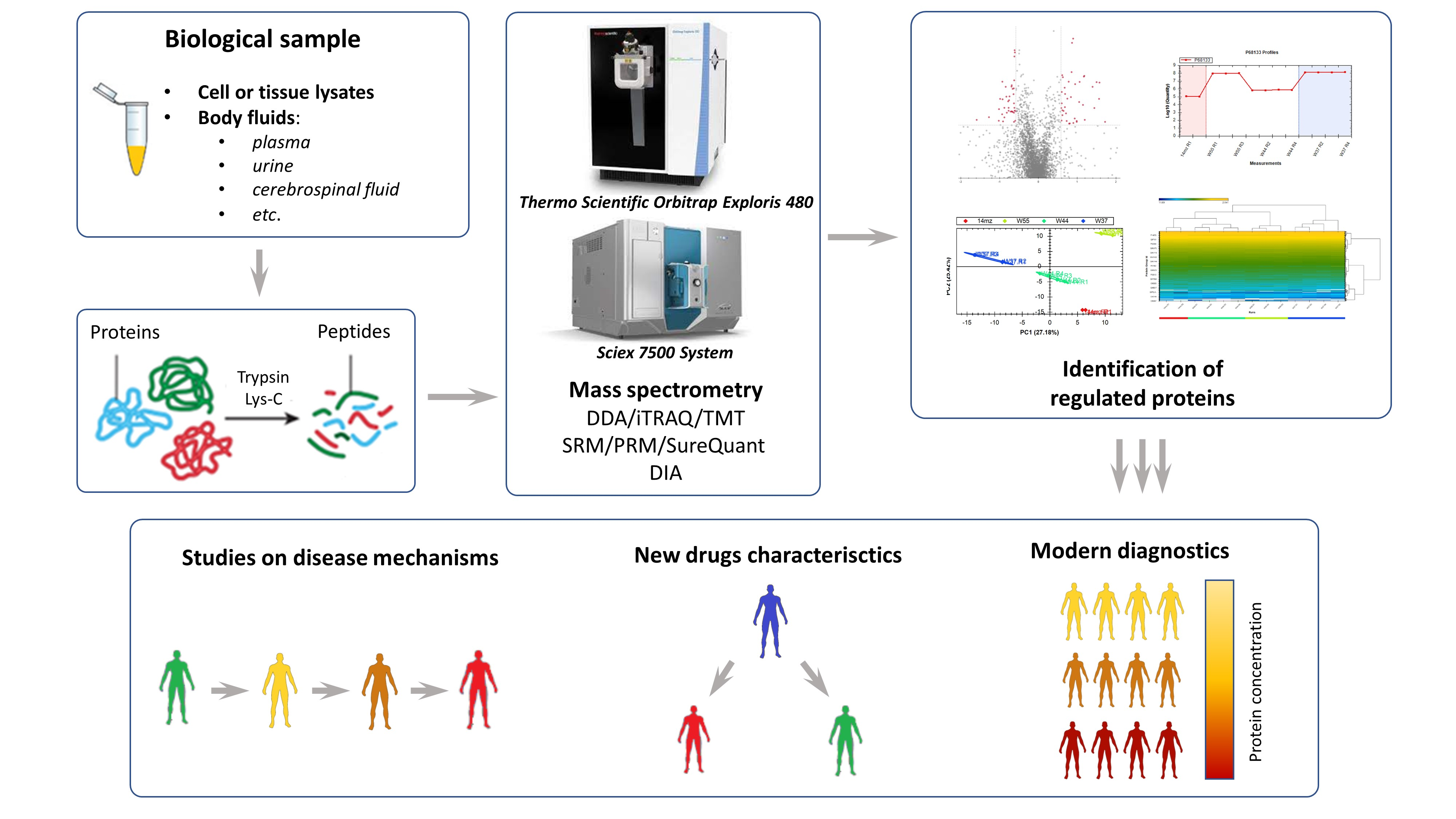Proteomics Laboratory (PL)
The Proteome: An Overview
The term “proteome” is derived from “PROTEin component of a genOME,” describing the full complement of proteins present within an organism, tissue, cell, or specific cellular compartment (e.g., mitochondria). Human cells are estimated to contain over two million distinct protein isoforms, called ‘proteoforms’, which drive all cellular metabolic pathways and intracellular signaling networks.
Proteomics
Proteomics encompasses the comprehensive analysis of complex protein mixtures, such as cellular lysates or tissue extracts, to reveal both qualitative and quantitative changes across the proteome. Over the past years, due to the constant methodological advancements, this field has become indispensable in the investigation of cellular processes and disease mechanisms.
Proteomics Services at the CDT-CARD Laboratory
The Proteomics Laboratory at CDT-CARD offers cutting-edge proteomic services supported by state-of-the-art instrumentation, including the Thermo Scientific Orbitrap Exploris 480 platform for high-resolution mass spectrometry, alongside the Sciex QTRAP 7500 for targeted, high-sensitivity analyses. Core services include:
Orbitrap Exploris 480 platform
Comprehensive (proteome-wide) analyses utilizing:
DDA (data-dependent acquisition), or shotgun proteomics:
- Label-free methods
- Isobaric labeling techniques (e.g., TMT, iTRAQ)
DIA (data-independent acquisition, also termed Next-Generation Proteomics)
- Label-free methods
Targeted proteome analyses, employing advanced techniques:
- PRM (Parallel-Reaction Monitoring)
- SureQuant
Sciex QTRAP 7500 platform
Highly sensitive targeted analyses include:
- MRM (Multiple-Reaction Monitoring)
- MRM3
Laboratory Infrastructure

The Proteomics Laboratory at CDT-CARD is equipped with a Thermo Scientific Orbitrap Exploris 480 mass spectrometer with a FAIMS Pro interface, coupled to an UltiMate 3000 HPLC system, and Sciex QTRAP 7500 mass spectrometer integrated with a Waters Acquity UPLC M-Class system. These configurations allow for leveraging a wide spectrum of modern proteomics techniques, with data-independent acquisition (DIA) serving as a primary analytical framework. Additional capabilities include advanced analytical methodologies such as MRM3 and SureQuant, while the Exploris’s high-resolution capacity (up to 480,000) enables fully quantitative, isobaric labeling analyses (e.g., TMT, iTRAQ). The laboratory’s instrumentation has been selected to maximize data quality and throughput in quantitative proteomics while minimizing optimization times.
Applications in Molecular Medicine

Proteomics bridges gene expression data with the functional context of expressed proteins. Thus it plays a critical role in modern molecular medicine applications, from drug discovery and development to innovative diagnostic strategies. Identifying disease-specific protein expression changes or discovering novel biomarkers represents one of the most challenging yet promising objectives in clinical proteomics, supporting the progression of personalized therapeutic approaches i.a. for civilization diseases.
photo on main page of laboratories – OPI PIB



 LINKEDIN
LINKEDIN